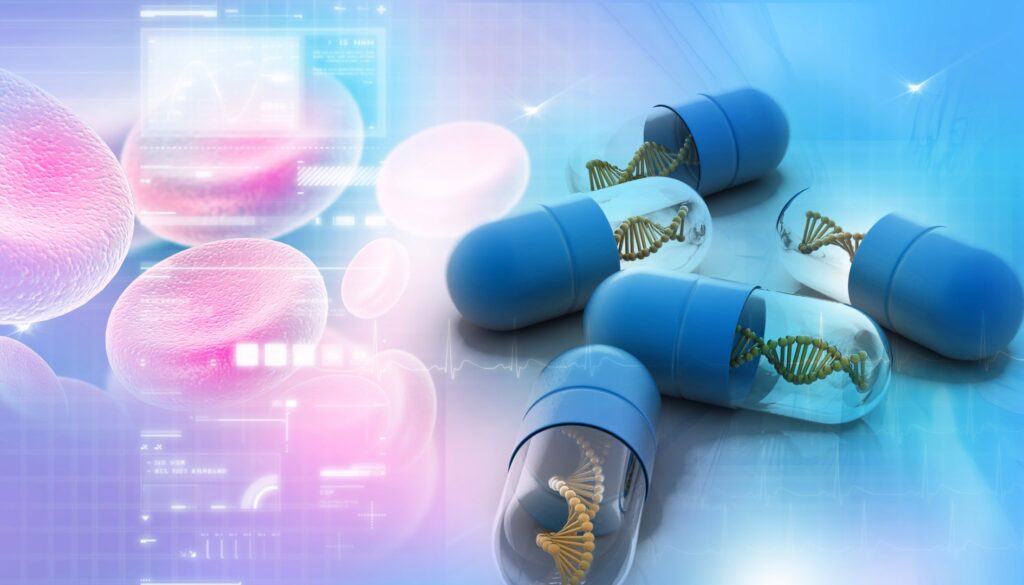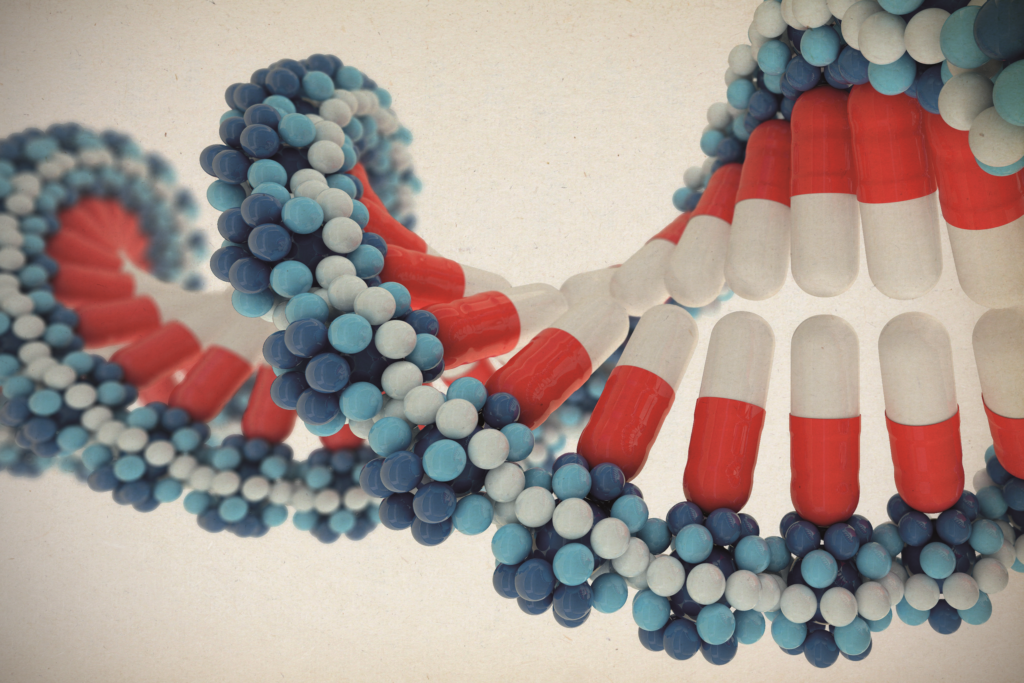How Pharmacogenomics Is Reducing Adverse Drug Reactions
For decades, adverse drug reactions (ADRs) have haunted modern medicine like a shadow—unexpected, sometimes severe, and often deadly. It’s estimated that ADRs cause hundreds of thousands of hospitalizations globally every year, disrupting lives and placing a massive financial burden on healthcare systems. But a scientific revolution is quietly shifting this narrative. The field of pharmacogenomics—where genetics meets pharmacology—is transforming how we understand, predict, and ultimately prevent these drug-related complications.
At the core of this revolution lies a deceptively simple idea: people respond differently to the same drug because of their unique genetic makeup. Just as no two individuals have identical fingerprints, no two bodies metabolize drugs in exactly the same way. This is where genetic testing for medication response comes into play, enabling clinicians to tailor prescriptions based on the patient’s DNA—a concept known as personalized drug therapy.
Genetic Clues Behind Drug Reactions
Take antidepressants, for example. Major Depressive Disorder (MDD) is notorious for its trial-and-error treatment approach. One drug might work wonders for one patient but trigger severe side effects in another. Recent studies have shown that when treatment is guided by pharmacogenomic profiling, the therapeutic response improves by 20–30%, time to symptom relief is halved, and ADRs are slashed by up to 50% (4). This isn’t just a matter of convenience—it’s a game-changer for patient safety and mental health outcomes.
Similarly, in cancer treatment, the stakes are even higher. Anthracyclines, a class of chemotherapy drugs, can trigger cardiotoxicity in up to 65% of patients, sometimes leading to congestive heart failure. But through pharmacogenetics and prescriptions guided by DNA insights, researchers have identified genetic variants associated with these toxic effects. Though translating these findings into clinical guidelines has been slow, novel methods are now helping to refine which genes and pathways are directly responsible—ushering in more effective preemptive care for vulnerable patients (1).
The Promise of Preemptive Testing
The application of adverse drug reaction DNA tests is no longer limited to rare cases. Routine pharmacogenomic panels are now identifying common single nucleotide polymorphisms (SNPs) in drug-metabolizing enzymes and receptors that influence drug efficacy and toxicity (abstract5). For example, variants in genes like TPMT, UGT1A1, or HLA alleles are already being used to guide drug selection and dosage. This level of gene-based medication dosing is cutting through the uncertainty, allowing healthcare providers to prescribe with surgical precision.
Next-generation sequencing technologies are accelerating this shift. With more robust data and advanced in silico models, we now have a clearer understanding of how genetic variations disrupt drug metabolism. These tools are not only helping to identify risk but are actively supporting decisions in clinical settings, bringing research from bench to bedside faster than ever before (2).
Emergency Medicine Meets DNA
In high-stakes scenarios like emergency medicine, where there’s no room for error, pharmacogenomics becomes even more critical. Imagine needing immediate pain relief or anti-seizure medication, and the drug you’re given triggers a life-threatening reaction. By integrating pharmacogenomic data into emergency protocols, clinicians are now better equipped to predict drug response on the spot. Genes such as CFTR or BRCA1/2 have shown actionable impacts on drug metabolism, improving not just outcomes but survival rates in time-sensitive conditions (3).
Economics and Adoption: A Win-Win
The practical impact of pharmacogenomics isn’t just clinical—it’s economic. For patients, personalized therapy means fewer drug switches, fewer hospital visits, and faster recovery. A pharmacogenomics-guided antidepressant protocol, for instance, has shown to save $2,000 to $4,000 per patient annually, while slashing system-wide costs by millions (4). Clinics are catching on—adoption rates for pharmacogenomic testing have jumped from 5% to 25% in just five years.
Despite this progress, the field still faces hurdles. The path from genetic discovery to standardized testing is long and demands rigorous replication and clinical validation. Many findings remain locked in academic journals, waiting to be transformed into guidelines that can be implemented across healthcare systems (1). But the momentum is undeniable, and every new discovery tightens the link between DNA and drug safety.
Future of Safer Medicines
Pharmacogenomics is not just about fancy science—it’s about safer, smarter medicine. With every new gene variant identified and validated, the prescription pad becomes less of a gamble and more of a strategic tool. The integration of pharmacogenomics drug response data into everyday care has the potential to reshape how we treat everything from depression to cancer, chronic pain to infectious diseases.
The old model of “one-size-fits-all” prescribing is crumbling. In its place is a future where personalized drug therapy based on each individual’s DNA reduces suffering, accelerates recovery, and avoids catastrophe. As more hospitals adopt pharmacogenetics and prescriptions informed by genomics, we move closer to a healthcare system where dangerous drug reactions are not the norm—but the exception.
Because ultimately, your DNA shouldn’t just be a biological curiosity. It should be the blueprint for your treatment.
References
- Scott, E. N., Hasbullah, J. S., Carleton, B. C., & Ross, C. J. (2020). Prevention of adverse drug effects: a pharmacogenomic approach. Current Opinion in Pediatrics, 32(5), 646–653. https://doi.org/10.1097/mop.0000000000000935
- Tong, H., Phan, N. V., Nguyen, T. T., Nguyen, D. V., Vo, N. S., & Le, L. (2021). Review on databases and bioinformatic approaches on pharmacogenomics of adverse drug reactions. Pharmacogenomics and Personalized Medicine, Volume 14, 61–75. https://doi.org/10.2147/pgpm.s290781
- Alammar, F. A., Alghamdi, A. S., Almuhaylib, A. M., Alotaibi, S. S., Alwaked, M. H., Alrashidi, A. A., Alrasheed, B. B., Alsarimi, F. a. H., Alanazi, A. A., & Alumtairi, A. Z. (2023). Advances in pharmacogenomics for personalized emergency medicine. International Journal of Health Sciences, 7(S1), 3488–3508. https://doi.org/10.53730/ijhs.v7ns1.15152
- Huang, M., & Pan, H. (2023). Pharmacogenomic profiling to tailor antidepressant therapy: improving treatment outcomes and reducing adverse drug reactions in major depressive disorder. Shifaa., 2023, 19–31. https://doi.org/10.70470/shifaa/2023/003
- Anunobi, O. O. (2024). Pharmacogenomics as a tool in addressing genetic VariationDependent adverse drug reactions. Dutse Journal of Pure and Applied Sciences, 10(1b), 37–54. https://doi.org/10.4314/dujopas.v10i1b.5




